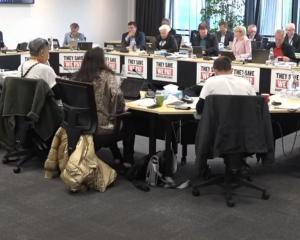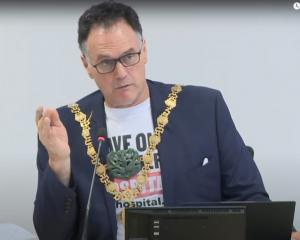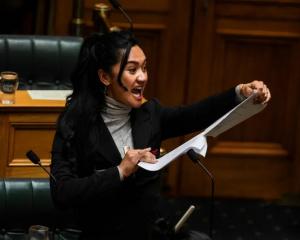

Our trust in government has been put to the test recently.
What we need first is transparency around what the government is doing. Without understanding what is going on we not only lose trust but we cannot usefully choose politicians to be in charge.
Environmental issues are high on the minds of those of us who are fortunate to be able to live without fear of not paying our bills each week. We are hoping our government will play a proper part both at home and away to protect the environment.
However, a recent report by Simon Upton, the Parliamentary Commissioner for the Environment, said that we are spending over $2 billion annually on the environment, but how much difference that money has been making is unclear. Government agencies focus on measuring performance by output rather than outcome, making it difficult for Parliament and the public to hold the government to account. Links between data, research and money thrown at environmental problems were thin, lacking transparency and governed by short-termism, the report said.
One of the key difficulties in current reporting was that environmental problems often lacked a simple link between cause and effect or, in some cases, there was no data.
This report looked at the activities of a government which describes itself as evidence driven.
The clear message from the report is that we have no idea whether there is any gain for the environment for $2 billion of our money.
The same lack of transparency and therefore accountability has been happening around so-called Covid response and recovery spending.
Cabinet "redirected" $84.7 million unspent Covid money to the Three Waters reform programme in April, despite Grant Robertson’s earlier promise to focus these funds specifically on the direct costs of pandemic response and the economic recovery.
Unbelievably, $2.2 million was paid to Local Government NZ (LGNZ) under an agreement whereby LGNZ would support, endorse and promote the Three Waters programme.
The whole sorry saga of Three Waters taints all it touches.
In the beginning, Nanaia Mahuta said that Three Waters would be optional.
Then the Government paid LGNZ to lobby its own members on behalf of the Government without telling any of us that it had infiltrated this supposedly independent group to do so.
When opposition did not go away the Government admitted it would be compulsory.
Then it criticised those who had concerns and suggested that such criticisms were based on racist ideas.
And finally, it sneaked through Parliament, during urgency and without notice, a clause to stop subsequent governments chosen by us carrying out their job to be the highest court in the land, by entrenching part of the proposal.
In defence of the Prime Minister, while Ms Mahuta clearly knew about the clause, Labour leadership did not, despite voting for it during this scrambled urgency process. It seems likely that this clause will be removed during the third reading, but that should be a wake-up call to Parliament that members need to be ever vigilant to watch for the introduction of supplementary papers at the last minute.
This clause is even more egregious since the Labour Party was advised by Crown legal advisers that it was not proper before boxing on and attempting to get cross-party agreement for the entrenching clause. When this was not forthcoming they dropped it.
For the Greens to sneak it in knowing that, and for them still to be defending this process and the clause, is not to their credit.
Neither is talking of this entrenchment as though it is controlling the sale of our water, which it clearly is not.
Trust is a rare commodity throughout these instances.
We should be able to trust the Government to have a good idea of the gains they expect to make with the billions of dollars of our money they spend; that there is good evidence that the spending will have the desired effect; that they are spending our money on what they say they will, not redirecting it to projects which have not gone through proper budget scrutiny.
We should be able to trust them not to pay LGNZ — which is there to lobby government on behalf of council members — millions of dollars to support government proposals, thereby removing proper scrutiny of such proposals by LGNZ.
We should be able to trust the Government not to sneak laws through under urgency and behind even the Prime Minister’s back.
And not to try to bind future governments chosen by the people of the future.
For a proper democracy we need to be able to trust our leaders.
- Hilary Calvert is a former Otago regional councillor, MP and DCC councillor.













